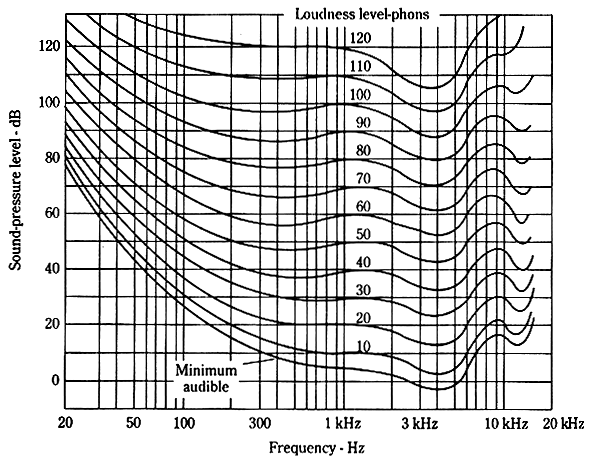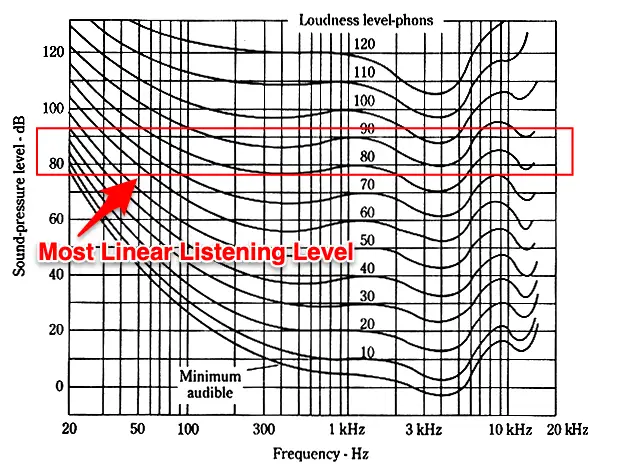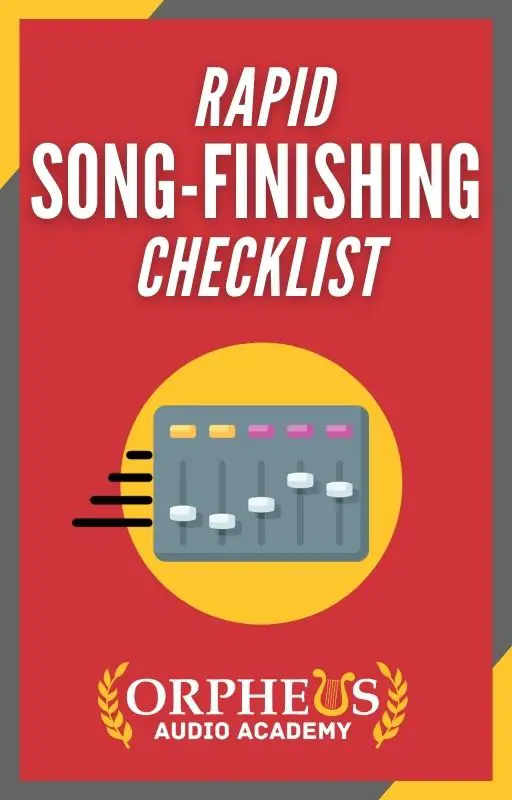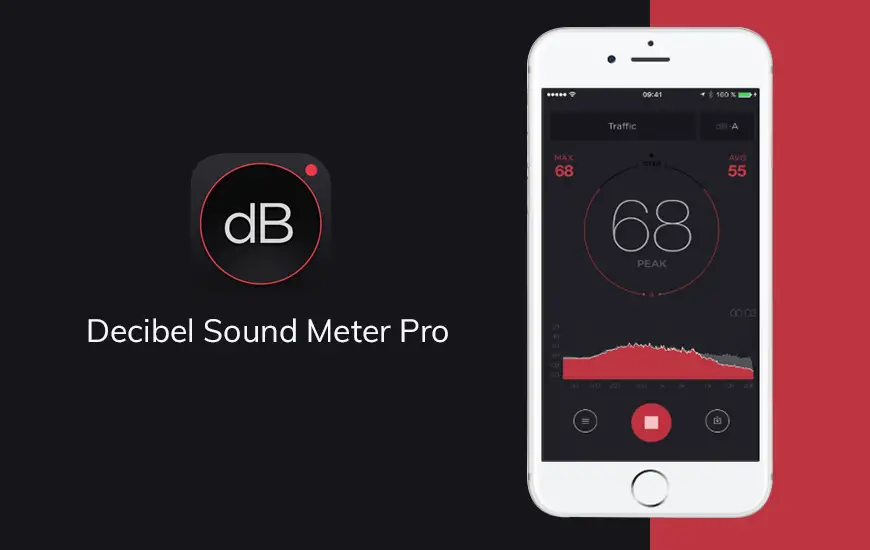When you're mixing your track, the volume which you monitor your mix at is very important.
Too loud or too quite, and you can throw off your entire mix.
So...what volume should you mix at?
To hear the most accurate representation of your music, you should mix at 85db to 90db while EQing and critical listening. The rest of the time you should mix at a volume level that allows for a conversation without raising your voice.
Now you may be wondering...
"Why that particular range of 85 to 90 db?"
Well, it's because of something called the "Fletcher Munson Curve".
The Fletcher Munson Curve & Mixing
What many don't realize is that we humans don't perceive sound linearly.
You would think if you heard a low-pitched sound and a high-pitched sound at the same volume-level you would perceive them as being the same in volume...but this isn't the case.
As the actual loudness changes, the perceived loudness our brains hear will change at a different rate, depending on the frequency.
Crazy, I know!
Here's how it impacts your mixing:
- At low listening volumes – mid range frequencies sound more prominent, while the low and high frequency ranges seem to fall into the background.
- At high listening volumes – the lows and highs sound more prominent, while the mid range seems comparatively softer.
Yet in reality, the overall tonal balance of the sound remains the same, no matter what the listening volume.

This Fletcher Munson Curve showing the relationship between volume, frequency, and human hearing perception.
If you stop and think for a second, you'll realize this is true. You can try it out by playing a song at low volume and seeing what you hear.
Probably not a lot of high or low frequencies. Just the stuff in the middle.
This is music sounds better at higher volume levels, more specifically, in the 85db to 90db range, as this is the range at which our hearing is the most linear.
No wonder there are so many song lyrics about cranking the radio up!

Why Bass Sounds Inaudible At Lower Volumes
As you've probably noticed, the first thing to go when you turn down the volume is the bass.
Well if you look at the graph above, it's not hard to understand why. As you can see, as the volume decreases, the bass precipitously decreases, whereas the other frequencies maintain a more relatively regular relationship.
In fact, you can't even hear 50hz and below unless you're listening at a level of at least 40db.

Create Better Songs, Faster
Click below to download my free song-finishing checklist to help you create radio-ready songs without taking months to complete them.
When To Mix At Low Volumes
Because of Fletcher Munson, you may be thinking that you should always mix at 85 to 90 db. You may have even heard people tell you that you need to mix loud all the time, but this is a mistake.
The Problem With Mixing Loud
Mixing loud (85 to 90 db) should only be done sparingly. This is because this is pretty darn loud. It's borderline uncomfortably loud.
Below you can find a chart displaying how loud regular everyday sounds are so you can get an understanding for how loud this is. But in short, mixing loud for extending periods of time will:
Everyday noises and sounds | Average Sound Level (measured in decibels) | Typical Response (after routine or repeated exposure) |
|---|---|---|
Threshold of hearing | 0 | No damage |
Just audible | 10 | No damage |
Soft whisper | 30 | No damage |
Normal Conversation | 60 | No damage |
Washing Machine | 70 | You may feel annoyed |
Gas-powered lawn mower | 80-85 | Damage to hearing possible after 2 hours of exposure |
Motorcycle | 90-95 | Damage to hearing possible after about 50 minutes of exposure |
Approaching subway train, car horn (16ft) | 100 | Hearing loss possible after 15 minutes |
Civil Defense Siren | 130 | Painful |
Firecrackers | 140 | Threshold of pain and injury |
With that in mind, when should you mix loud?
When To Mix At High Volumes
It's important to mix loud (85-90db) when you are using Equalization.
When EQing, you are boosting and cutting the frequencies of certain sounds, so it's very important that you are hearing what's actually there, otherwise it's like trying to sculpt a statue in the dark.
So when you're doing critical evaluation of your track, or EQing, be sure to play back your track at 85-90db.
This will ensure you're hearing everything as accurately as possible. If you mix too quietly, you may be tempted to boost up the bass frequencies because they don't sound loud enough.
Then later when you go to listen to your song later on headphones or in the car and you crank it up, you'll wonder where all the bass came from!
How To Know How Loud Your Listening Volume Is?
So now you know you need to mix at 85 to 90 db when EQing and doing critical listening, the question remains...
How do you know if you're listening back at the right volume level?
After you've gotten use to mixing at this level, you'll just know it when you hear it, but in the meantime, you can download a free app and just hold your phone in the spot you sit when mixing to get the volume level.
Conclusion
Mixing at the right volume level is important for getting a professional mix.
If you're making any EQ changes or listening critically to the relationships between all of our sounds, then be sure to Mix at 85-90db.
For everything else, mix at a lower volume level, such as around 50-60db.
Create Better songs, Faster
Of course, creating a sufficiently and pleasantly loud track is only one part of creating professional-sounding songs.
If you want to finish more radio-ready songs, and complete them faster without having to spend months or even weeks on end working on the same songs over and over, not even knowing if you're making them any better...
Then grab my free Rapid Song-Finishing Checklist below.
You'll discover a proven step-by-step system for completing professional-sounding songs.

Create Better Songs, Faster
Click below to download my free song-finishing checklist to help you create radio-ready songs without taking months to complete them.
This will be especially beneficial if you find yourself working on songs for hours on end only to look back and wonder if you actually made your track any better.
I hope you got value from this post on, How Loud Should You Mix, helpful!
If so, feel free to share it, and let me know in the comments below...

